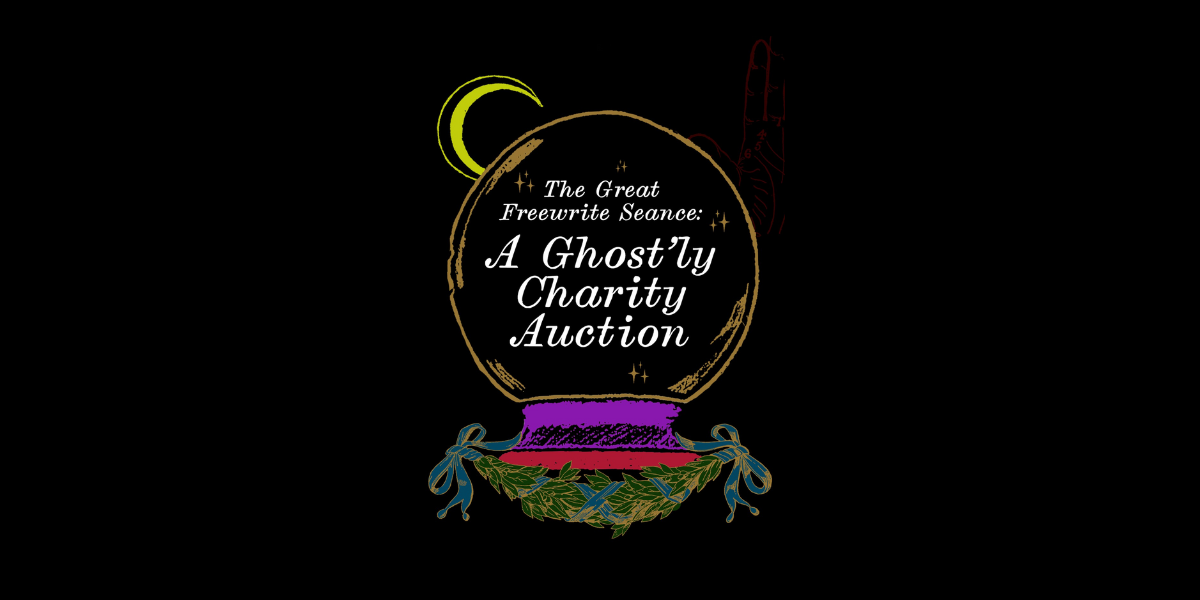This is a guest post by Lancelot Schaubert. Schaubert is the author of the forthcoming novelFaceless, and lives in Brooklyn with his wife and attack spaniel.The City of Joplin, Missouri commissioned him to write and direct a photonovel that fictionalized and enchanted the history of their town. He has sold articles to Writer's Digest (one forthcoming and one in the 2016 Poet's Market), the World Series Edition of Poker Pro, McSweeney's, Bernie Sanders' campaign site, and others. His fiction or poetry has appeared or is forthcoming in The Misty Review, Carnival, Encounter (who has purchased a dozen or more) and many others. He loves soup. Send him soup.
You can learn more about him athttp://lanceschaubert.org/ orlet him directly send you his best work.
________________________________
Do you believe in writer's block?
I don't. But perhaps not for the reason you think.
The fantasy writer Patrick Rothfuss has said ten thousand times that plumbers don't get plumbers block. I like that, especially since my plumber was also my sensei for shoto jitsu-- the man was brilliant at both and invested time heavily in both, both black belt of the year and your local handy man. Ed Daniels. Ed Daniels never got “blocked.” Rothfuss elaborated on this during one of his Worldbuilders Twitch streams last fall. He believes what some people attribute to writer's block is clinical depression.
You could say further that plumbers don’t get plumbers block unless, as a human, they’re clinically depressed. Let’s break that down.
Writer's block, in my estimation, comes down to one of two things: laziness or depression.
We'll talk about depression first. Rothfuss was right to bring up the number of writers who have committed suicide, passively or actively, in history. A deep sadness runs parallel to the writing gene because we spend so much time in our headspace. Some believe that depression is an evolutionary trait that helps us reevaluate our situation: we go into a quiet place to reassess, to come to a better understanding of our current predicament, and then move forward stronger and more agile. The monks? They might have called it silence and solitude -- the prayerful posture of one who uses meditation to remain present in “this, my Father's world.”
Wherever you sit on that spectrum, you can't deny that spending so much time imagining other worlds can leave you drained of your happy-happy joy-joy juices. And you get stuck. You're stuck not because you're a writer. You're stuck because you're a human. My buddy T. A. Giltner who teaches religion at St. Louis University says to all of his freshman on the first day of class, “Raise your hand if you want to be a good doctor. A good lawyer. A good scientist.” They raise their hands. “Keep your hands up if you think this class is pointless as a means to that end.” They lower their hands. “This class is not about religion. It's about becoming a decent human being. You want to be doctors and lawyers and scientists but you don't want to be good human beings? Good luck with that.”
The phrase “good doctor” has the assumption of a “good human” built in.
Writers too. Without a healthy, patient, joyful, kind humanity there ain't a one of us who's going to become a good writer. Let alone a great one. And that includes this awful disease that hit even me as a high school student and sometimes hits me even now: depression. To tackle this form of writer's block, you must do what all humans do. You must become whole by seeking help. I have a counselor who has helped me dig my way out of the hellhole that was my 2015 and my writing has improved.
But again, that’s not specific to writers.
As for laziness, I'm convinced that those who minimize their own depression by glorifying it with labels like “writer's block” make it easier for sluggards to scoot along. I know, I was one. I was a lazy teenager who had little reason to be lazy, considering the poverty of some of my early years. For one reason or another, perhaps because they follow the exact opposite trajectory of those professional football careers that blossom early and fade as fast, the careers of writers take a long time to marinate, cure, and hibernate. Coupled with wealth and privilege -- whether you're a trust fund kid or simply whiter than your neighbor -- writers have invented the most absurd methods of procrastination on the market all the way down to writing about not writing about not writing on social media. And then they hijack this term that has been used to minimize the clinical depression found in the pros or the greats and they say, “I have writers block.”
Are you depressed? If that's the case, seek help and support, but it has nothing to do with being a writer.
If you're not depressed, then you're lazy. I am convinced that most writers need spend their time learning how to write at first. I'm convinced most writers must begin by learning how to work their asses off to survive and then thrive. That probably means some low-wage job or finding a way of generating passive income yourself rather than inheriting it or shoving it off to some future generation through debt. It might mean finding simple joy in trimming the verge or taking out the trash. If this is you, you don't have writer's block, sorry. You have an aversion to hard work. And only through learning how to work, how to enjoy your work, how to thrive even in an environment that's cursed and stacked against you, will you be able to write well. Stephen King has a high output precisely because he worked his ass off in a laundromat, as a teacher, and as a chimney sweep and then applied those skills to writing.
Once you’ve learned to work, then apply that work to your study and practice. Then you read the "On Writings" and the "Elements of Style" of the world. Then you literally re-write your drafts over from scratch. Then you tap into the thing you've always wanted to do and bring it to bear upon the Earth.
But let's not call it block anymore.
If you're depressed, seek help.
And if you're lazy, shut up and get to work.
I should mention that I wrote the first draft of this on a Freewrite -- I'm testing it today because I've followed this team from the day they started taking contributions. I've been known to jack out of the matrix more than my peers and head to upstate New York or to Northwest Arkansas to duck into some hobbit hole and type away on my Smith Corona or scribble on whatever scraps I find. Perhaps the Freewrite will help me with that.
But the typing itself? Hell it took thirty minutes hunched over this metal coffee table in the lobby of their offices here in the Flatiron district. My back hurts, I have a headache, and I'll have to revise this before they post it. And yet somehow it wasn’t as bad this time around because for once I wasn’t focused on the machine, the sound, the internet, or the reloading of paper and ribbon. Me and the words, baby, me and the words.
Was it worth it?
The sky was grey when I began, but the sun's reflecting off of the windows of this high rise next door. And I've taken pleasure in my work. I am not worried about future awards. I have no delusions of grandeur in this moment. In my mind right now, there hides no phantom of any high school sweetheart or bully or hardass teacher I must now impress. There is only the work and the pleasure I take in it.
Lancelot took pleasure not in winning tournaments. Not in the wreath or the prize. It was the virtue he sought, virtue as an end in itself. He took pleasure in drawing back the bow and shooting the arrow, in dehorsing other knights, and in running the gauntlet faster and with fewer bruises than the time before.
The discipline itself brings the joy.





























